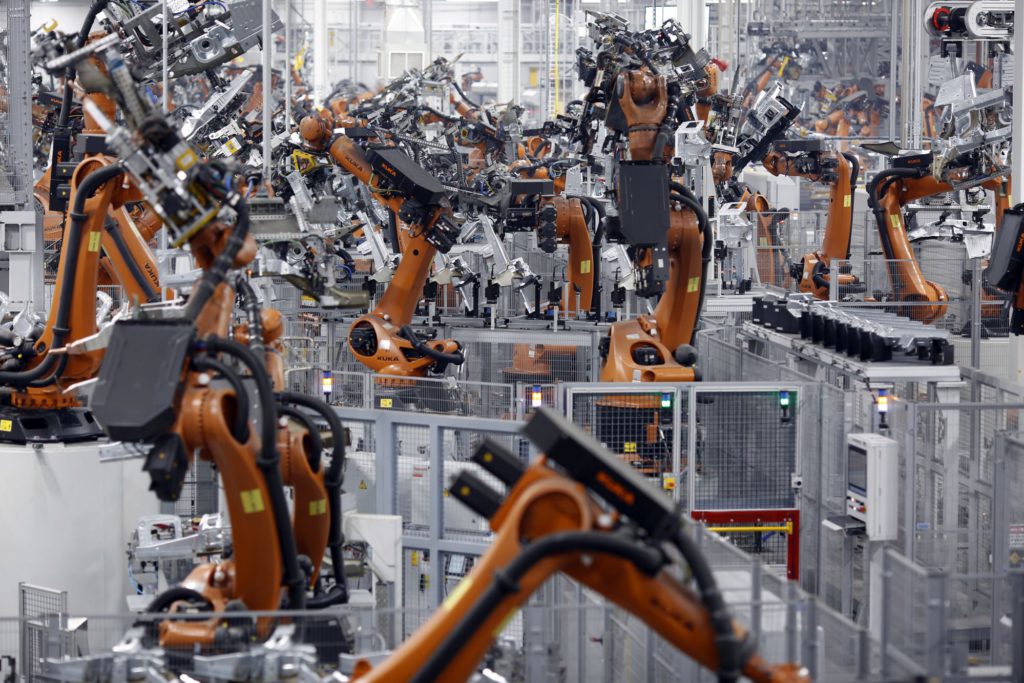(Bloomberg) —
BMW’s move to build a fossil-fuel free car plant in Hungary is looking prescient as Europe’s manufacturing sector scrambles to replace Russian oil and gas with alternatives.
While those plans would have been discussed long before the war in Ukraine, they show the drastic rethink and commitments companies face to wean themselves from oil and gas. The benefits will take time to roll in, even as the crisis speeds the pivot to renewable energy with Europe’s energy woes adding to the toll on carmakers already straining in the shift to electric cars.
First, the 1 billion-euro Debrecen plant won’t be operational until 2025, so it wouldn’t provide an immediate buffer from the ongoing energy concerns, or if Russia decided to stop supplying gas. Carmakers depend on the fuel for their paint shops to generate heat and steam, some component-making involving melting of metals and for electricity to power their factories.
The whole industry also relies on a multitude of components, particularly plastics, that use natural gas as feedstock as well as in production processes.
Overall, gas accounted for over half of BMW’s energy consumption last year.
While there are alternatives, short-term fixes come at a price for the bottom line or the environment.
Mercedes-Benz is considering using the more expensive propane or butane gas in its paint shops, while Volkswagen has decided to keep the ability of its Wolfsburg power plants to run on coal.
The German car giant had previously planned to convert the power stations at its headquarters to gas-only to cut CO2 emissions by 1.5 million tons.
With Debrecen, BMW is opting for a clean slate, saying the factory will be the world’s first auto plant that can run without fossil fuels, according to production head Milan Nedeljkovic.
Solar panels on site will help to create a significant portion of energy consumption with the remainder of electricity needs procured from renewable sources via the grid.
The paint shop will run on electricity, using new technology and the company is investigating geothermal energy to support heating processes.
For BMW’s existing production network across Germany, the US and China, cutting out gas will be difficult to achieve, Nedeljkovic said.
“To convert existing plants is not a short-term option,” Nedeljkovic said.
“It’s more than just the heater you have to change, it requires significant structural changes in the plant.”
But it’s possible and necessary, as the luxury-car maker aims to reduce CO2 emissions by 80% in vehicle production by the end of the decade.
The company has defined individual plans for each plant, using locally available sources of renewable energy.
In Leipzig, Germany, BMW has relied on wind power for a while and has set up a buffering system with used electric-vehicle batteries.
In future, it also plans to use hydrogen from a nearby supplier. Its plant in South Africa already uses biomethane, while others use hydroelectric power.
“Its not always just about a business case,” Nedeljkovic he said.
“At the end of the day, it is something we see as our commitment to set up CO2-free car production.”
Like getting this newsletter? Subscribe to Bloomberg.com for unlimited access to trusted, data-driven journalism and subscriber-only insights.
More stories like this are available on bloomberg.com
©2022 Bloomberg L.P.











